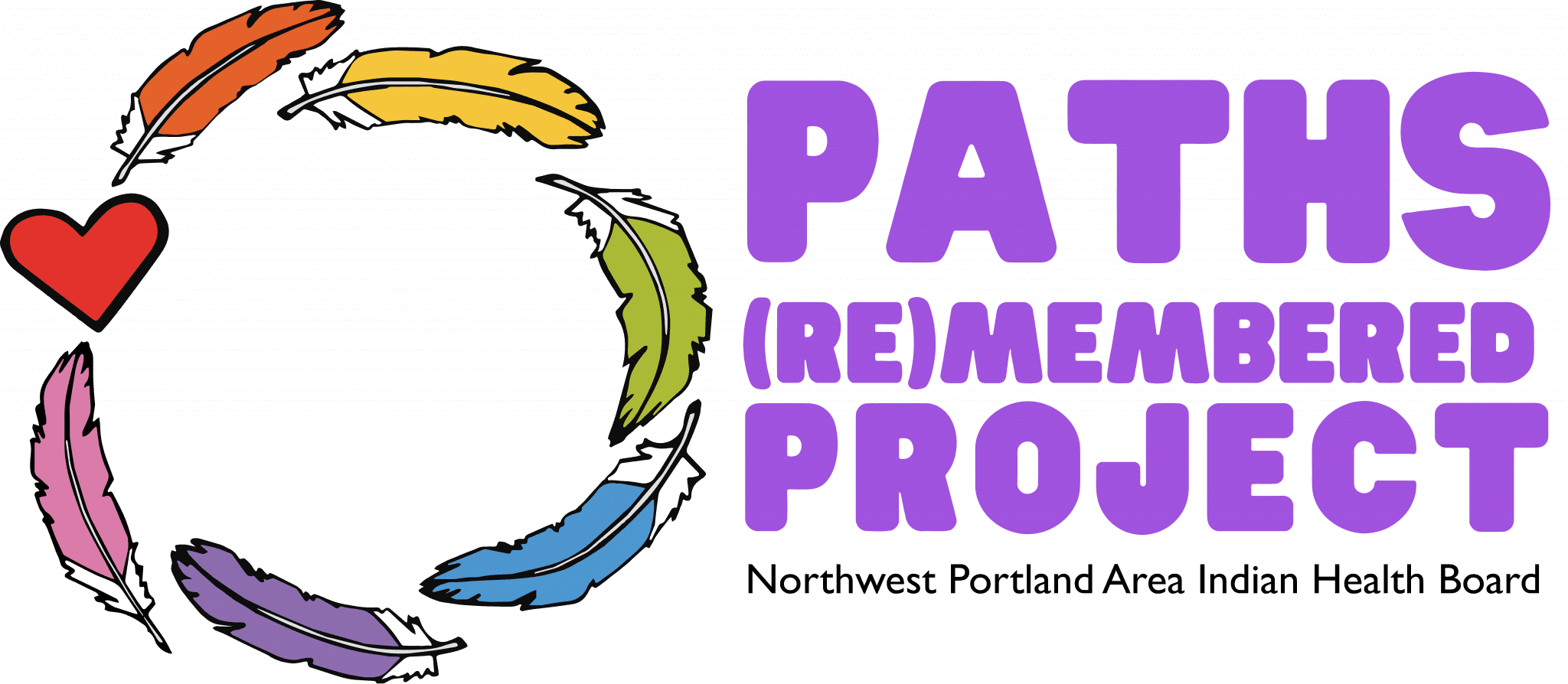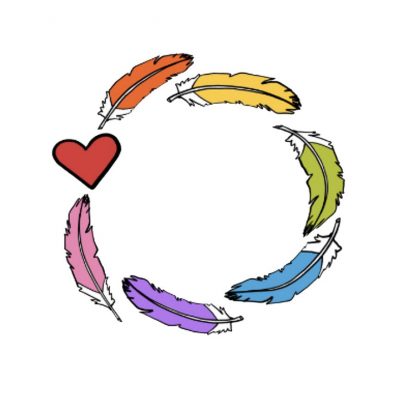We talked to two current med students in the Pacific Northwest about what it’s like to study medicine as Indigenous and 2SLGBTQ+ people.
How open are you about 2SLGBTQ+ and Indigenous identities in med school settings? to what extent do you feel able to really show up as your full self?
L: It depends on who I’m talking to. Some of our teachers are really old school, and I don’t always feel comfortable talking to them, but I’m lucky to have spaces where I do feel really safe. We have a QMed group for queer students. Within that there’s a group specifically for queer people of color. I also get to do my clinic days at an Indigenous health board, which is a good fit. My current advisor is a queer Filipino woman who’s done a lot of work with Indigenous communities. She’s taken on a little bit of a mentor role with me. We meet for coffee and talk, and I feel very comfortable being myself around her.
R: The majority of the time I don’t feel able to show up as my whole self. There are aspects of race and queer identity and a fear of stigma, which create hesitancy for me around my identity in medical school. River is actually my preferred name, not my given name. Most hospitals require your legal birth name on your badge. It’s hard to introduce myself the way I’d like to when patients are like, That’s not what your badge says. It’s hard to explain to build connection if it feels like I’m lying to them right at the beginning. I want to say, This is who I am, but I’m not allowed, legally, to express that.
Some of the places I’ve felt most comfortable have been among community members: Indigenous clinics, where there are Indigenous faculty and Indigenous patients, but there I’ll sometimes receive sexist or homophobic or transphobic comments, so I still hesitate to fully be myself. For example, I might have a patient, an elder, who’s having an acute bronchospasm, a medical emergency, and what’s getting him through is telling stories, but then among his stories, he makes these sexist homophobic jokes. I have to decide, Is this the place for me to bring up the problems with that joke? No, it’s probably not, but experiences like that make me more cautious.
Are Indigenous ways of knowing and healing a part of your education and practice in med school at all?
R: I feel like often this relates to how much the hospital values whole wellness: psychological and spiritual aspects of wellness, not solely physical wellness. It also depends on specific providers. I was on a surgical ICU rotation where there was a Black patient that came in with concern for a liver laceration. And so you have to track the H&H for that. The technical standard is that the patient doesn’t eat food for several hours before going to the OR, but this patient was homeless and had a complicated social background and was saying he just wanted food. He wasn’t going to let anybody poke him. He didn’t want to talk to anybody. He just wanted to eat something, because he was hungry. Which, I mean, that’s fair. The fellow that we had overnight wouldn’t give him food. He said, If he doesn’t want to comply, we won’t get H&H’s. The residents and I thought maybe it’s okay to give him food—sure there’s a risk of aspiration, but what’s the greater risk here—but we’re not allowed to override the fellow. The next morning we had different fellows, and they were angry we hadn’t given him food. They said, This is a medical center where we see complicated social situations all the time. If he has liver laceration, we need to get H&H’s, and if that means giving him a little bit of food and realizing we have to immediately rush him to the OR, then that’s ok. To me that holistic approach is Indigenous medicine. It’s love and compromise and caring, keeping in mind the big picture, what really matters, and meeting people where they’re at and not rejecting them because they don’t follow our rules.
L: In my program, classes in minority health are electives. They have pathways where you can focus on a certain area, so I’m doing the LGBTQ pathway and the Indian health pathway, but the classes I take for those pathways are electives. They’re not something the rest of the school is studying.
I actually didn’t realize how much my Indigenous identity affected my approach to health until medical school, which has such a strong Western perspective. It’s not like there’s not overlap, but the program isn’t completely aligned with my perspective. It’s more biomedical. I was raised to understand my well-being as dependent on communal well-being and health, on interpersonal relationships within a community and the community as a whole. Whereas, Western healthcare infrastructure is very individualistic and centered on the individual.
Why are you in med school? How do your queer and Indigenous identities affect your personal approach to patient care?
L: My mom was indigenous, my dad’s white, so I have a Native family and a white family. Looking at both sides, it was very clear that they live in different worlds. The Native side of the family is poorer and has worse health outcomes. They’ve had so much more struggle and way less opportunity. That didn’t feel right to me even growing up, but I didn’t have the tools then to understand what was going on. Through my undergrad education I realized I wanted to do something to help with those disparities. That’s why I ended up pursuing medicine. All these social inequities manifest in our health. I can’t fix this problem, but I can help address it and be part of the solution. I can offer care that takes culture into consideration, and I can advocate for changes to systems to better serve these communities.
R: I grew up in a low income household without a whole lot of access to care for multiple reasons: funding, not trusting doctors. I grew up feeling like I couldn’t be Indigenous outside of my home, and I couldn’t be queer inside my home, because there’s a lot of homophobia and transphobia in my family. I had a hard time finding Indigenous and queer role models. I found a queer Indigenous doctor for the first time when I came to med school, and I was like, You do exist! It was so exciting.
Seeing people who are like you in a clinical space is so important. I want to do family medicine with an OB GYN fellowship. I want to be present for people and visible and walk with them through their journeys, whatever their journeys.
Growing up, I was always told it’s natural to be straight and heteronormative. Having kids is natural. All of these things are what we’re supposed to do, and it’s unnatural not to. I always struggled with being queer and Indigenous, like those two things were counter to each other. In med school for the first time, I’ve been able to find community that loves me unconditionally. I finally felt that we were all related and realized that love should be a form of empowerment and not erasure. I realized the natural world is so much more broad than this notion of biological sex and having kids and reproduction, because nature is so much more expansive than that.
I frequently come back to this notion of water. Water is my queer relative. It’s in all of us, regardless of gender or sex. It flows through everything, interconnects everything. Its shape is always changing. I didn’t have a sense of self-worth and value for a long time, because I didn’t have any teachings to make sense of my belonging in the world. I don’t want other people to have to go through that. I want to be able to be there for them and to walk with them on their journey.
I’ve been blessed to find a community where I can be entirely 110% myself. I still sometimes don’t believe it. I get worried, but the community shows me time and again it really is ok, and I will always be welcome and loved and accepted for just being here, just living. I want to pay that forward and to ensure others have someone in their life to offer that unconditional love, and I want to pass it on to future generations so they can grow up strong, wrapped up in that warmth and kindness.


